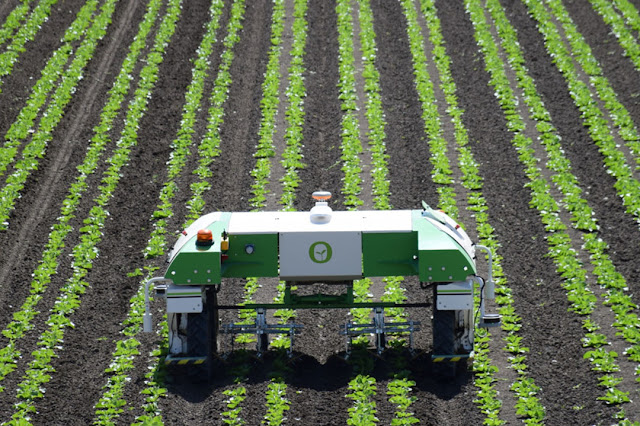Industrial Enzymes: Catalysts for Innovation and Sustainability
 |
| Industrial Enzymes |
Industrial enzymes are those that are used in a variety of industries for profit, such as the production of consumer goods, biofuels, chemicals, pharmaceuticals, and food and drink. Recent advances have led to the belief that employing isolated enzymes for biocatalysis is more economical than using whole cells. Enzymes can be used as a unit activity in a process to achieve a desired outcome, or they might be the target product. Industrial biological catalysis by enzymes has expanded quickly in recent years because to the amazing chiral and positional precision of enzymes, as well as their ability to act in mild conditions—qualities that conventional chemical processes do not possess.
Understanding
Industrial Enzymes
Enzymes are proteins that catalyze biochemical reactions
without being consumed in the process. They are highly specific, targeting
particular substrates to produce desired products efficiently. Industrial
enzymes are categorized based on the types of reactions they catalyze,
including hydrolases, oxidoreductases, lyases, transferases, and ligases.
The production of Industrial
Enzymes involves fermentation processes where microorganisms are
cultured under controlled conditions to produce the desired enzyme. Advances in
biotechnology and genetic engineering have significantly enhanced enzyme
production, improving yield, stability, and specificity.
Key
Applications of Industrial Enzymes
Food and
Beverage Industry: Industrial enzymes play a crucial role in the food
and beverage sector by improving product quality, texture, and shelf life.
Amylases, for instance, break down starches into sugars in brewing and baking
processes, while proteases aid in cheese making and meat tenderizing. Lactase
is used to produce lactose-free dairy products, catering to lactose-intolerant
consumers.
Detergents
and Cleaning Agents: Enzymes such as proteases, lipases, and amylases are
essential components of modern detergents. They help break down proteins, fats,
and starches, enhancing stain removal and cleaning efficiency. Enzymatic
detergents are effective at lower temperatures, reducing energy consumption and
environmental impact.
Textile
Industry: In the textile industry, enzymes are used to improve fabric
quality and reduce chemical usage. Cellulases, for example, are employed in
bio-polishing to remove microfibrils from fabric surfaces, giving them a
smoother finish. Enzymes are also used in biostoning denim to create a worn
look without harsh chemicals.
Biofuels: Enzymes
are critical in the production of biofuels such as ethanol and biodiesel.
Cellulases and hemicellulases break down lignocellulosic biomass into
fermentable sugars, which are then converted into bioethanol. Lipases are used
in transesterification reactions to produce biodiesel from fats and oils.
Pharmaceuticals
and Biotechnology: Enzymes play vital roles in drug formulation and
manufacturing. They are used in the synthesis of antibiotics, steroids, and
other pharmaceuticals. Enzymes are also integral to diagnostic assays and serve
as therapeutic agents, such as in enzyme replacement therapy for genetic
disorders.
Advancements
in Industrial Enzyme Technology
The field of industrial enzymes has seen remarkable advancements,
driven by biotechnology and genetic engineering. Recombinant DNA technology has
enabled the production of enzymes with enhanced properties such as improved
stability, activity, and specificity. Protein engineering techniques, including
directed evolution and rational design, facilitate the development of enzymes
tailored to specific industrial processes.
Immobilization technology has also advanced, allowing enzymes
to be fixed onto solid supports. Immobilized enzymes can be reused multiple times,
increasing their cost-effectiveness and efficiency in industrial applications.
Additionally, advancements in fermentation technology have optimized enzyme
production, reducing costs and increasing scalability.
Challenges
and Considerations
Despite the numerous benefits, the industrial enzyme sector
faces several challenges:
Cost of
Production: The production of enzymes, particularly recombinant and
engineered enzymes, can be expensive. Developing cost-effective production
methods and scaling up from laboratory to industrial levels remains a
significant challenge.
Regulatory
Compliance: Enzymes used in food, pharmaceuticals, and other regulated
industries must meet stringent safety and efficacy standards. Navigating
regulatory approval processes can be time-consuming and costly.
Stability
and Activity: Enzymes can be sensitive to environmental conditions such
as temperature and pH. Ensuring enzyme stability and activity under industrial
processing conditions is crucial for their effectiveness.
Public
Perception: The use of genetically modified organisms (GMOs) in enzyme
production raises concerns among consumers and regulatory bodies. Addressing
these concerns through transparent communication and demonstrating the safety
and benefits of GMOs is essential.
Future
Prospects and Trends
The future of industrial enzymes is promising, with several
trends and opportunities on the horizon:
Sustainability: As
industries strive to reduce their environmental footprint, the demand for
eco-friendly and sustainable enzyme-based processes is expected to grow.
Enzymes offer a green alternative to chemical processes, reducing waste and
energy consumption.
Integration
with Emerging Technologies: The integration of enzymes with emerging
technologies such as synthetic biology and metabolic engineering will open new
avenues for enzyme production and application. These technologies can create
novel enzymes with enhanced properties and enable the development of entirely
new biocatalytic processes.
Expansion
into New Sectors: The versatility of enzymes allows for their
application in new and emerging industries. For example, enzymes could play a
significant role in the development of bioplastics, biodegradable materials, and
waste management solutions.
Personalized
Medicine: Enzymes are increasingly being explored for their potential
in personalized medicine. Enzyme-based diagnostics and therapeutics tailored to
individual genetic profiles could revolutionize healthcare, providing more effective
and targeted treatments.
Industrial enzymes are transforming industries by providing
efficient, sustainable, and innovative solutions to various challenges. From
improving food quality and cleaning efficiency to advancing biofuel production
and pharmaceuticals, enzymes play a vital role in modern industrial processes.
Despite facing challenges such as production costs and regulatory compliance,
ongoing advancements in biotechnology and genetic engineering hold great
promise for the future of industrial enzymes. As industries continue to seek greener
and more sustainable alternatives, the demand for industrial enzymes is set to
grow, driving further innovation and development in this dynamic field.
Get more insights on Industrial
Enzymes
Get more related content on Industrial
Enzymes



Comments
Post a Comment